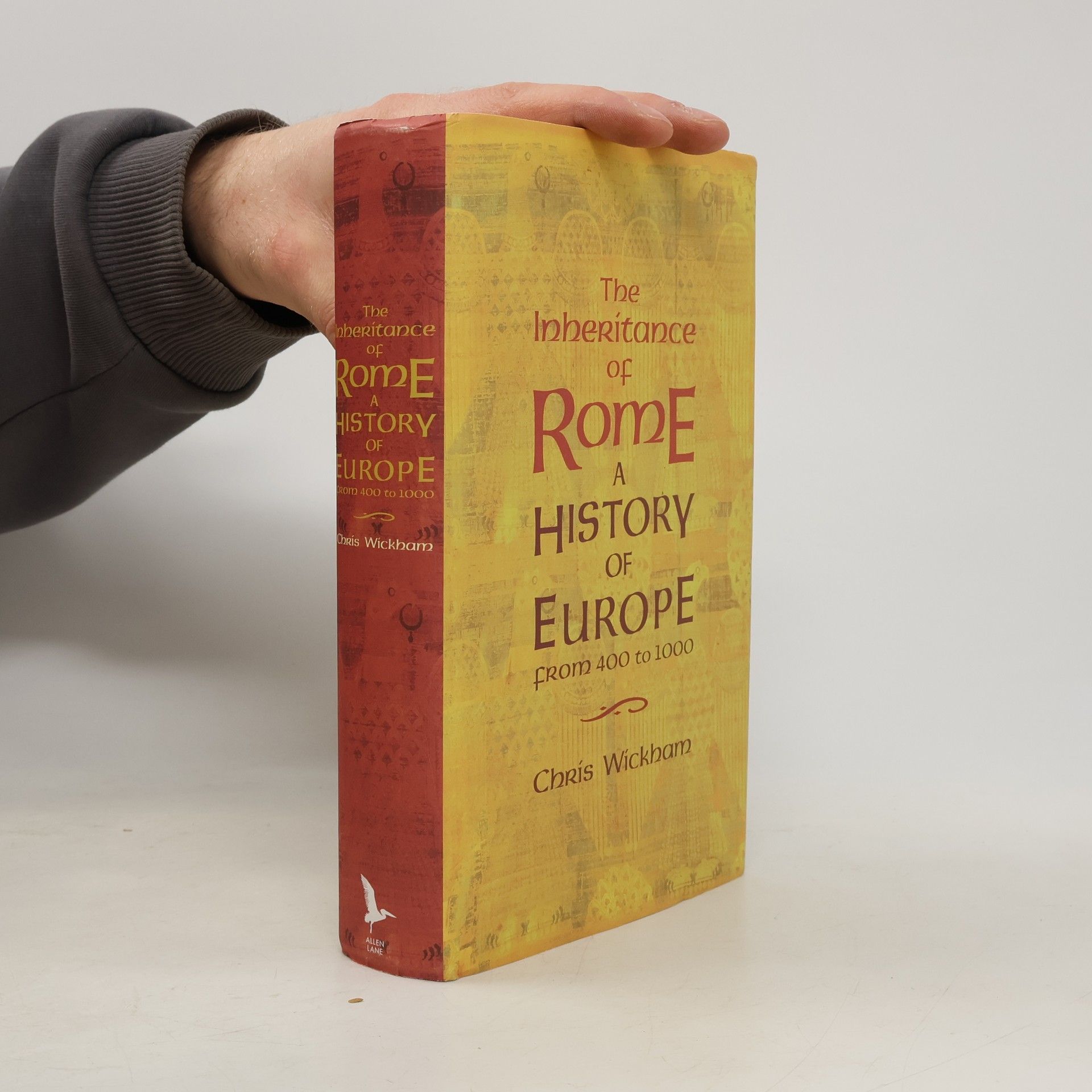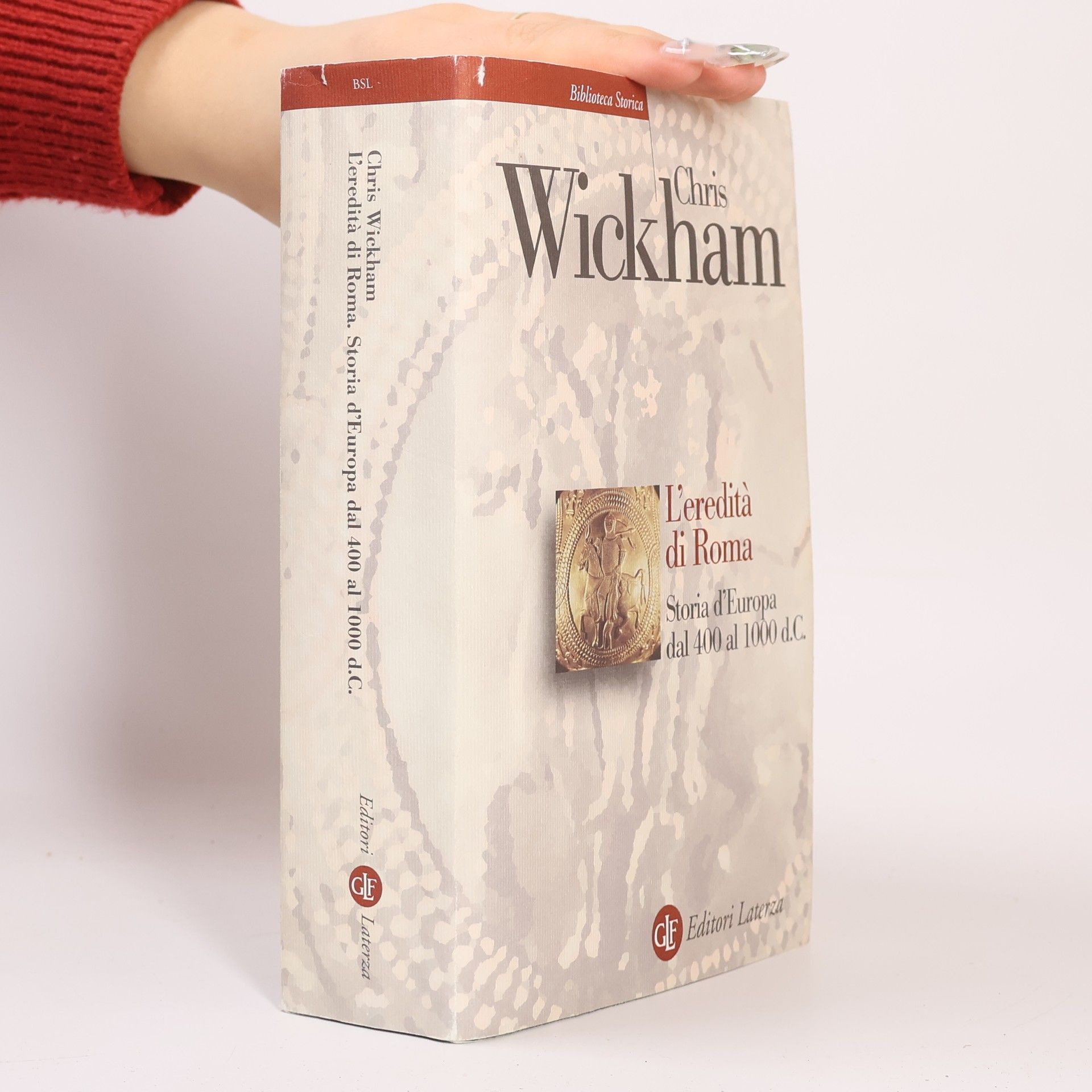Dopo il crollo dell’impero romano d’Occidente, dal V al X secolo, sullo sfondo di un’Europa ampia che va dall'Irlanda a Costantinopoli e alla Russia, dalla Scandinavia a tutta l’area mediterranea, si incontrano, si scontrano, si organizzano popoli diversi come i Goti, i Franchi, i Vandali, i Bizantini, gli Arabi, i Vichinghi. Sono loro i protagonisti dell’Occidente post-romano, dell’impero bizantino e degli imperi d’Oriente, dell’impero carolingio e post-carolingio. Saranno loro a dare una nuova forma al mondo dopo Roma: tutti si dovranno confrontare con la sua eredità, mediandola, traendone spunto, rinnegandola. Solo dopo sei secoli dal tracollo dell’impero, l’ombra di Roma comincerà così lentamente a scomparire. L’alto Medioevo è stato spesso ridotto dalla storiografia tradizionale a puro intermezzo temporale tra l’impero romano e l’alba del Rinascimento, o all’opposto esaltato come origine quasi mitica delle identità nazionali europee. Per la prima volta un grande storico restituisce la complessità, i cambiamenti sociali, politici, culturali di un pezzo di storia spesso trascurato, dove l’Europa odierna affonda le sue radici.
Chris Wickham Libri
Chris Wickham è Professore Chichele di Storia Medievale. Il suo lavoro approfondisce l'intricato tessuto sociale ed economico del periodo medievale, esplorando le dinamiche di potere, le strutture sociali e la vita quotidiana dei suoi abitanti. Attraverso un'analisi rigorosa delle fonti primarie, ricostruisce processi storici complessi, offrendo una comprensione sfumata di come le società medievali funzionassero ed evolvessero. La borsa di studio di Wickham si distingue per la sua profondità, chiarezza e capacità di illuminare le forze fondamentali che hanno plasmato il mondo medievale.






Sleepwalking into a New World
- 320pagine
- 12 ore di lettura
Amid the disintegration of the Kingdom of Italy in the eleventh and twelfth centuries, a new form of collective government—the commune—emerged in northern and central Italian cities. This work offers a fresh perspective on the origins of these autonomous city-states, reshaping our understanding of a pivotal political and cultural innovation of the medieval era. The author presents detailed portraits of Milan, Pisa, and Rome, set against a backdrop of other towns, arguing that the elites in these cities inadvertently created one of the first nonmonarchical forms of governance in medieval Europe. While not a democracy in the modern sense, the Italian city commune was so unprecedented that it baffled outsiders. As the old order collapsed, these communes arose, governed by consular elites "chosen by the people," independent of emperor or king. Despite frequent conflicts among themselves, they became organized and confident enough to unite against Frederick Barbarossa, the German emperor, achieving victory at the Battle of Legnano in 1176. This exploration reveals how the rise of the autonomous city-state laid the groundwork for the vibrant civic culture that would characterize the Renaissance.
Focusing on the Mediterranean economy from the 10th to 12th centuries, this book challenges traditional views of medieval economic systems. Chris Wickham utilizes documentary and archaeological evidence to provide an in-depth analysis of individual economies and their interconnections. The work encourages readers to reconsider the complexities and dynamics of economic relationships during this period, offering fresh insights into historical economic practices.
The Inheritance of Rome
A History of Europe from 400 to 1000
"The breath of reading is astounding, the knowledge displayed is awe-inspiring and the attention quietly given to critical theory and the postmodern questioning of evidence is both careful and sincere."--The Daily Telegraph (UK) "A superlative work of historical scholarship."--Literary Review (UK) A unique and enlightening look at Europe's so-called Dark Ages; the second volume in the Penguin History of Europe Defying the conventional Dark Ages view of European history between A.D. 400 and 1000, award-winning historian Chris Wickham presents The Inheritance of Rome, a work of remarkable scope and rigorous yet accessible scholarship. Drawing on a wealth of new material and featuring a thoughtful synthesis of historical and archaeological approaches, Wickham agues that these centuries were critical in the formulation of European identity. From Ireland to Constantinople, the Baltic to the Mediterranean, the narrative constructs a vivid portrait of the vast and varied world of Goths, Franks, Vandals, Arabs, Saxons, and Vikings. Groundbreaking and full of fascinating revelations, The Inheritance of Rome offers a fresh understanding of the crucible in which Europe would ultimately be created.
Medieval Europe
- 352pagine
- 13 ore di lettura
A spirited and thought-provoking history of the vast changes that transformed Europe during the 1,000-year span of the Middle Ages The millennium between the breakup of the western Roman Empire and the Reformation was a long and hugely transformative period--one not easily chronicled within the scope of a few hundred pages. Yet distinguished historian Chris Wickham has taken up the challenge in this landmark book, and he succeeds in producing the most riveting account of medieval Europe in a generation. Tracking the entire sweep of the Middle Ages across Europe, Wickham focuses on important changes century by century, including such pivotal crises and moments as the fall of the western Roman Empire, Charlemagne's reforms, the feudal revolution, the challenge of heresy, the destruction of the Byzantine Empire, the rebuilding of late medieval states, and the appalling devastation of the Black Death. He provides illuminating vignettes that underscore how shifting social, economic, and political circumstances affected individual lives and international events. Wickham offers both a new conception of Europe's medieval period and a provocative revision of exactly how and why the Middle Ages matter.
Medieval Rome
- 536pagine
- 19 ore di lettura
A new history of medieval Rome, told not from the standpoint of the Church, but of the Romans themselves. This volume examines Rome's cultural, political, religious, legal, and social identity to discover how the city functioned between 900 and 1150.
Angielski historyk, podejmując się zadania napisania książki na temat Rzymu w dobie między innymi rewolucji gregoriańskiej, przestudiował ogromną ilość źr�deł archiwalnych zgromadzonych w r�żnych włoskich archiwach, takich jak na przykład Biblioteca Apostolica Vaticana, Archivio Segreto Vaticano czy Archivio Storico Capitolino. W tym celu odbył około stu wizyt na P�łwyspie Apenińskim w ciągu dwudziestu lat.